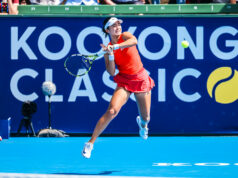Even without the foreknowledge that the ninth and 10th episodes of The Last Dance were completed extremely close to their airing date, the countless viewers who have tuned in to see them since they became available over the weekend would have noticed the documentary series’ weary legs. In stark contrast to the back-and-forth narrative style that permeated previous episodes, they mostly stuck to one that focused on the Bulls’ last two seasons, and particularly in the playoffs. Which, interestingly enough, made for compelling drama despite the obvious denouement. If nothing else, the focus served to overcome the unavoidable handicaps of the story being told in snippets and ultimately enhance the vicarious experience.
In part, The Last Dance eschews the time jumps as a matter of necessity; the rush to production borne of advancing the release of the series by two months tied the hands of director Jason Hehir. In larger measure, however, the move comes off as deliberate and aimed at precisely shining the spotlight on the Bulls’ titular run. Their final march to success — the very one all the other segments before it set up — was at hand, and veering from it would have been seen as an unnecessary, and most certainly unwanted, digression.
The result is nothing short of genius. The Last Dance fancies itself as the last word on its subject as well, and its cause is helped by the active participation of the principal protagonist of the Bulls’ dominance in the nineties. Indeed, Michael Jordan’s enthusiastic involvement in front of the camera was made possible by his final-say role behind the scenes as its executive producer. Is it then biased? Of course; all agendas are his by default. For instance, it pushes forth the contention that he had nothing to do with fellow Hall-of-Famer Isiah Thomas being left off the Dream Team, significant evidence to the contrary.
Another example of Jordan’s selective memory: his recollection of the so-called flu game, in which he insinuated that he was the victim of targeted food poisoning. Lost in trainer Tim Grover, best friend George Koehler, and his own musings was the fact that he wouldn’t have ordered pizza by telling the only joint open in hostile Salt Lake City at 10:30 in the evening his real name. In any case, “I ate the pizza,” he declared. “All by myself. Nobody else eats the pizza. I wake up about 2:30 throwing up left and right.” What he didn’t point out: He spit on the pizza that was allegedly brought to his hotel room by five delivery men so that no one else would deign touch it.
That said, there can be no discounting Jordan’s force of will. For whatever reason, he was sick when he trekked to the court in Game Five of the 1997 National Basketball Association Finals. The misnomer notwithstanding, he then proceeded to upend the Jazz with one of his best performances ever, finishing with 38 of the Bulls’ 90 points, seven rebounds, five assists, three steals, and one block through 44 minutes of play in a two-point victory. But, hey, the “flu game” sounds better than the “pizza game” or even, as more than a few quarters have speculated, the “hangover game.”
Throughout The Last Dance are other similar illustrations of Jordan’s predisposition to bend the truth to his advantage. He makes up slights, arranges matters to better his vantage point — does anything, really, to fuel his competitive juices. And, from a Machiavellian standpoint, the results are clear. He’s the best of the best of all time. He deserves the lingering shot at the end of the last episode, and as he walks away from the frame, a lighted cigar in hand, victory is his, and, most importantly, in just the way he envisioned.
Anthony L. Cuaycong has been writing Courtside since BusinessWorld introduced a Sports section in 1994. He is a consultant on strategic planning, oprerations and Human Resources management, corporate communications, and business development.



